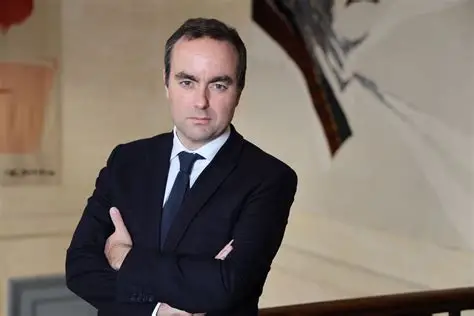Sébastien Lecornu has been appointed France’s fifth prime minister in two years, assuming office on Wednesday against a backdrop of widespread anti-government demonstrations that underscored the country’s deepening political crisis.
Lecornu, a conservative ally of President Emmanuel Macron and former defence minister, arrived at the Hôtel de Matignon at midday to meet his predecessor, François Bayrou. Bayrou was removed from office by parliament on Monday following controversy over plans to reduce France’s substantial budget deficit.
In his first remarks, Lecornu pledged a “profound break” with previous administrations and promised to outline his political approach “in the coming days”. He said his leadership would differ “not just in method” but in substance, as he seeks to assemble a government capable of securing sufficient parliamentary support to avoid an early collapse.
The hard-left France Unbowed (LFI) party has already declared its intention to table a no-confidence motion against Lecornu, though it has yet to gain the backing of other political groups.
The appointment came as protests erupted across the country in opposition to President Macron’s government. Clashes between demonstrators and police led to nearly 300 arrests, with disruption reported to schools, transport and public services.
Authorities deployed 80,000 police officers nationwide in anticipation of unrest. Interior Minister Bruno Retailleau warned that there would be “zero tolerance” for violence.
A coalition of left-wing organisers had called for a nationwide shutdown, but the impact was mixed. High-speed train services largely operated as scheduled, and disruption to the Paris metro was limited. However, numerous schools were blocked, and protesters staged occupations of roads and railway stations.
In Paris, demonstrators erected barricades from rubbish bins, obstructed roads and school entrances, and threw refuse at police. Around 1,000 protesters attempted to enter the Gare du Nord railway station but were prevented by officers.
In Lyon, protesters blocked a major road and set fire to bins. In Nantes, police used tear gas to disperse crowds, while in Marseille, officers stopped 200 people from blockading a main thoroughfare.
The unrest reflects mounting grassroots opposition to the government, adding to the challenges facing Lecornu as he begins his tenure in an already volatile political climate.



